Gratitude: A Pathway to Positivity and Clarity
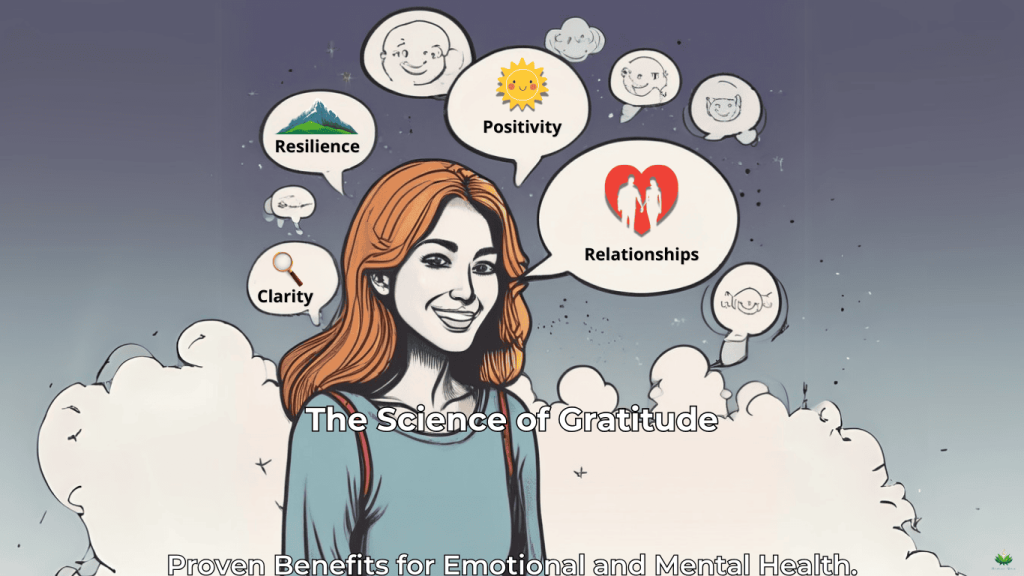
Gratitude is more than a feeling; it’s a life-changing attitude that changes your perspective toward the world and how you interact with people. Attention to what you’re thankful for moves your sight away from stress and negativity toward positivity and clarity. This practice does not balance your emotions but strengthens resilience, sharpens mental focus, and deepens your relationship with others.
Scientific research underpins that it is truly life-changing. Studies published in Frontiers in Psychology confirm that the practice of gratitude reduces anxiety and depressive symptoms. A 2020 study in the Mindfulness Journal also linked gratitude journaling to improved concentration and mental health. Gratitude is a feel-good habit and a scientifically supported tool for achieving cognitive clarity and emotional stability.
How Gratitude Improves Your Well-Being
It Shifts Focus from Stress to Positivity
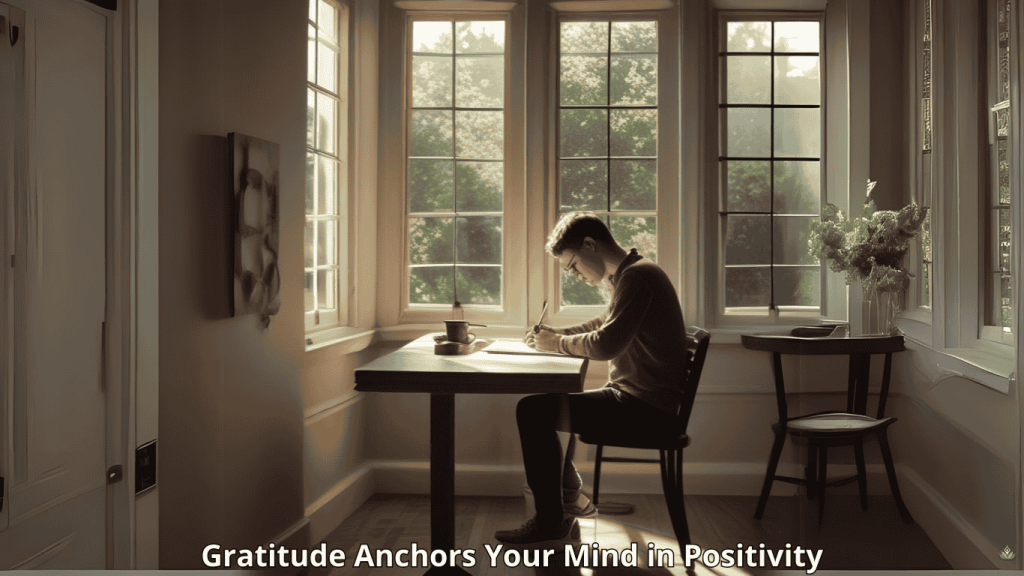
Gratitude acts like a mental anchor when one feels overwhelmed, returning them to the present. It makes you seek the silver lining even in the worst of times and helps to clear your mind from anxiety.
Real-Life Reflection:
Think of some busy day when even a tiny act of kindness—scant as it may be, like a smile from a stranger or a thoughtful text from a friend—made you stop and appreciate those little things in life. Such moments remind you to enjoy the little things in life.
How It Helps:
Focusing on one’s blessings, not burdens, through the power of gratitude rewires the brain’s hardwired to immediately default to being positive, opening the avenue to clear thinking.
Increases Emotional Resilience
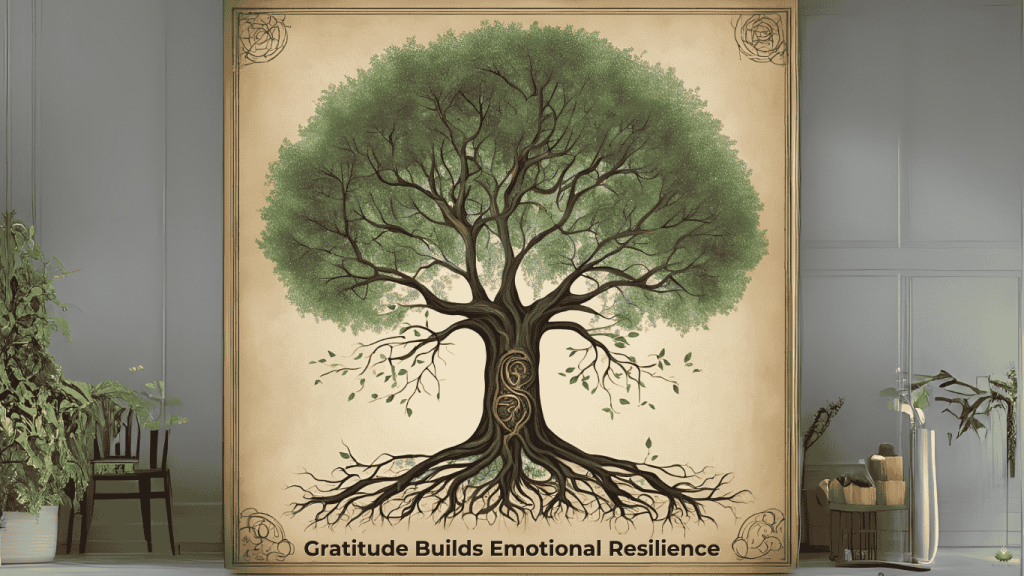
Gratitude carries armor to fight better against life’s ups and downs. Distinguishing the silver lining of bad experiences strengthens an individual and makes him more adaptable.
Real-Life Example:
Think of having some professional setback, such as a missed promotion. Gratitude lets you focus on lessons learned, growth achieved, and what that might open.
How It Helps:
This positive rephrasing empowers and strengthens your emotional core, enabling you to take on new challenges with optimism and a sense of direction.
Improves Focus Mentally

Gratitude encourages mindfulness because it turns one’s attention to the present. And over time, this raises one’s ability to pay attention to what is truly important.
Research Insight:
Some of the leading research in 2020 proved that being consistently grateful makes one considerably, circa 25%, more effective in tasks requiring holding attention.
How It Helps:
Gratitude opens the highway to decision-making and problem-solving without diversion even more.
Strengthens Relationships and Social Bonds
Gratitude deepens relationships by encouraging appreciation for the kind deeds of people who show up as support in one’s life, which may spread positivity.
Real-Life Connection:
You could even write a heartfelt letter to your mentor and say thank you. These small gestures mean everything and create much healthier relationships.
How It Helps:
Acknowledging others helps increase trust, create a support network, and mentally and emotionally strengthen a person.
Less Negative Thinking
Gratitude is a potent treatment against negative framing: it reframes disappointments as opportunities for growth, not as bad luck.
Reframing Example:
It is unpleasant when an event gets canceled, but if you focus on gratitude, you can see that this free time is a hidden gift for you and your loved ones.
Why It Helps:
Gratitude allows you to forge ahead with a clearer vision by developing a constructive mind.
Simple Ways to Practice Gratitude Daily
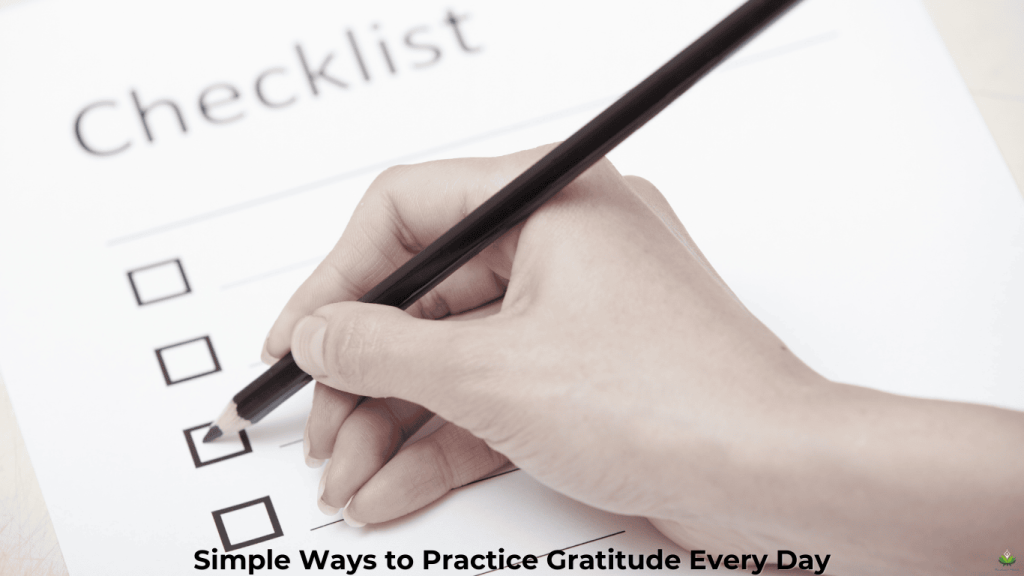
Gratitude Journal
Write down three things you’re thankful for each day: the sunshine, a helpful coworker, or an accomplishment of your own.
Pro Tip: To track your reflections effortlessly regularly, try using apps like Presently or Grateful.
Gratitude Meditation
Add gratitude to your mindfulness routine. Focus on what brings you joy, such as a loved one’s smile, a recent accomplishment, or health.
Try This: Find guided meditations on YouTube at HolisticalMethod to amplify.
Express Your Gratitude to Others
Acknowledge the people who make a difference in your life. Gratitude seals relationships through a kind note, a thoughtful text, or even a heart-to-heart conversation.
Challenge: Write a letter expressing your appreciation to a respected individual. Can you share extra poignancy in person or via video call?
Gratitude Walks
Observe everything around you with gratitude—the whispering of foliage, the singing of birds, or the gentle sun.
Pro Tip: Take a “five-senses gratitude walk,” where you notice something for which you’re grateful with each of your senses—sight, sound, touch, smell, and taste.
Reframe Challenges
Flip the switch and ask yourself, “What’s the silver lining here?” Gratitude turns obstacles into stepping stones for growth.
Example: When stuck in traffic, utilize the extra time to listen to an uplifting podcast or enjoy a moment of quiet.
Daily Affirmations
Design gratitude affirmations, such as, “I am grateful for each small step I make daily.” Repeat those affirmations to help strengthen the positive feeling.
Pro Tip: Set up sticky notes with gratitude affirmations around your workspace or home to remind you often.
Gratitude Vision Board
Create a collage of the people, achievements, and things you’re thankful for. Hang it where you can see it daily, and it will lift your mood.
Pro Tip: Create a digital vision board using tools like Canva or Pinterest that you can always refer back to.
Interactive Gratitude Challenge
Ready to take your gratitude practice to new heights? Try this 7-day challenge:
- Day 1: Write three things you are grateful for.
- Day 2: Thank someone who helped make your day better.
- Day 3: Gratitude walks into nature.
- Day 4: Reframe a current challenge with a positive perspective.
- Day 5: Share your journey on social media with #GratitudeClarityChallenge.
- Day 6: Take 10 minutes to meditate on things you are grateful for.
- Day 7: Reflect on the week and how gratitude has impacted your life.
The Gratitude Ripple Effect
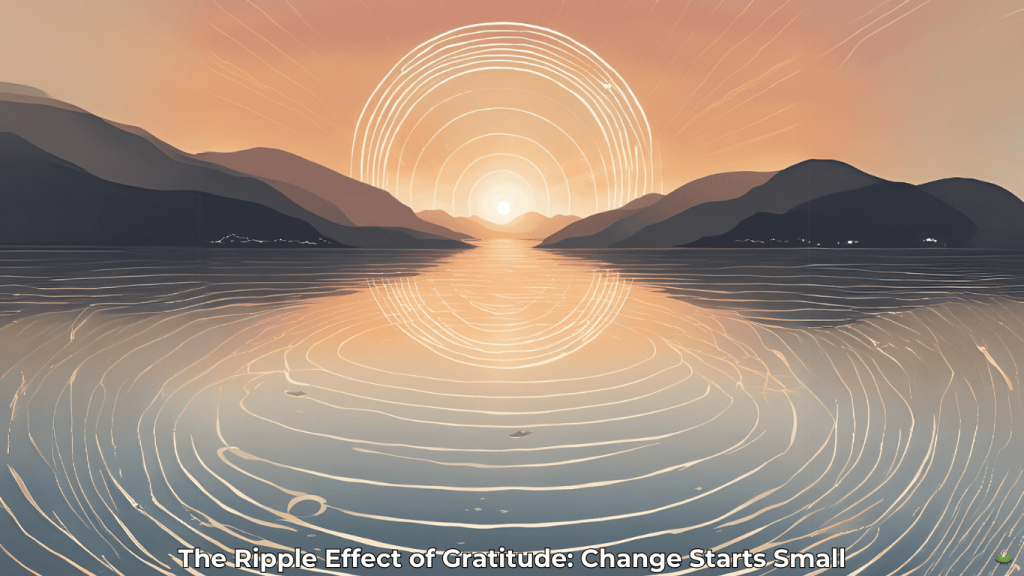
Gratitude is contagious; thankfulness inspires others to do likewise, and before one can see it, it spreads right to change relationships, communities, and workplaces. What an entire world would be if many more started using life through the lens of appreciation—it all begins with minor moves such as this one. Imagine a world where increasingly more people view life through the lens of appreciation—it all starts with small steps like yours.
Call to Action
Share your progress on #GratitudeClarityChallenge to inspire others and create a ripple effect of positivity around you.
FAQs: Gratitude Practices for Mental Clarity and Emotional Balance
1. What is the easiest way to begin the practice of gratitude?
One straightforward way to begin the practice is to start a gratitude journal, which involves writing down three things you are grateful for daily. Gratitude walks and mindfulness exercises are other easy ways to weave this into your day-to-day life.
2. How does gratitude help with mental clarity?
Gratitude reduces all of those, quiets negative thoughts, and keeps your focus so that you face decisions with clarity and confidence.
3. Does gratitude help with anxiety and depression?
Gratitude decreases symptoms of anxiety and depression by shifting a person’s focus from stressful aspects to more positive elements of life.
4. How does gratitude relate to relationships?
Gratitude reinforces trust and strengthens bonds, creating a positive ripple effect in personal and professional relationships.
5. Have any tools been developed for practicing gratitude?
Yes, apps like Presently and Grateful and guided meditation platforms like Calm—there are ways to weave gratitude into daily life.
Angel Dimitrov. (2024). Holistical Method. https://holisticalmethod.com